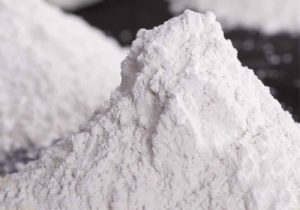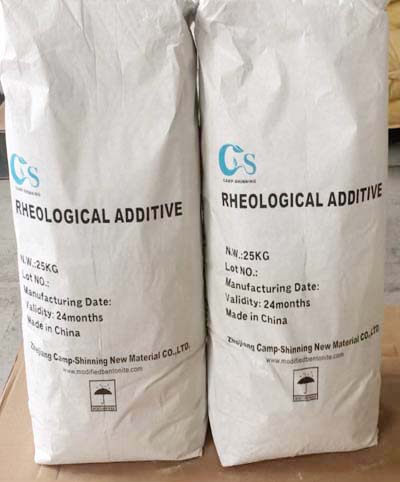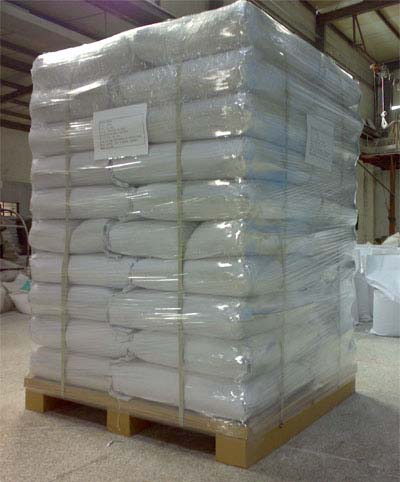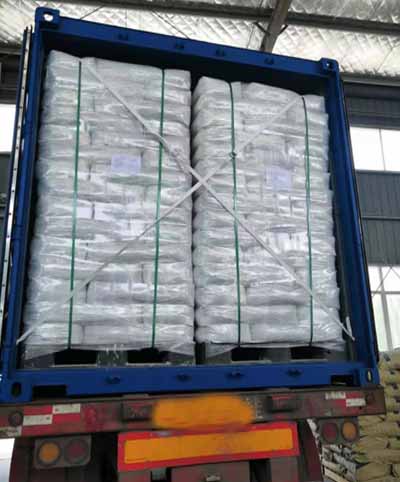
CP-992 Organophilic clay
CP-992 Organophilic Clay, the wet process improved viscosifier and gelling agent . It is a rapidly dispersing.
As a specialized manufacturer of Organic Bentonite Clay, we understand that the process of converting raw clay into a high performance organoclay product requires extremely delicate chemical and physical processing steps.
The following is a professional overview of the organic clay manufacturing process, designed to provide valuable reference for industry colleagues and potential customers.

Organoclay Supplier / Manufacturer :
Internet address: https://www.rheologymodifiers.com/
Email address: [email protected]
Whatsapp / Wechat: +86-13185071071
Organophilic Clay Supplier / Manufacturer :

CP-992 Organophilic Clay, the wet process improved viscosifier and gelling agent . It is a rapidly dispersing.

CP-982 Organophilic Clay is an amine treated bentonite with a moderate temperature performance.

CP-150 Organophilic Clay is a self-activating organoclay that disperses easily and performs well in diesel, low aromatic mineral oil, modified vegetable oil, and synthetic base fluid formulations.

CP-10 organoclay is a rheological additive made of organoclay. It is used in non-polar to moderately polar aliphatic and other solvent systems

CP-MPZ organoclays is an modified bentonite that is used in solvent and resin systems ranging from non-polar to highly polar.

The CP-MPS rheology modifier is a type of organo clay rheological additive that is used in solvent and resin systems ranging from non-polar to high polarity.




CP-EW Organoclay for Water Based paint. It is primarily employed in water borne paint systems,such as latex paint. So it is a good water based additive in paints,coatings,grease etc.

CP-EWS Modified bentonite It is employed in a water-borne coatings system. CP-EWS organoclay outperforms CP-EW in terms of thixotropy, transparence, and dispersion.

CP-WBS Rheology Modifier is rheological modified bentonite. It is mostly employed in water-borne systems.
organophilic clay manufacturing process | Organophilic Clay CP-2 also named amine treated Bentonite.
In diesel oil based fluids,organophilic clay viscosifier CP-2 are used to increase carrying capacity and suspension properties, providing support for weight materials and improved cutting removal. Organophilic bentonite also aids in filter-cake formation and filtration control.
Properties
Composition Organically modified bentonite clay
Physical appearance Off white to tan free-flowing powder
Moisture content (105℃,2hr) ≤4%
Particle size (<76μm or 200mesh) ≥95%
Specific Gravity 1.6-1.8
Advantages
Effective viscosifier and gellant
Aids control of fluid loss to the formation
Increases emulsion stability
Improves cuttings carrying and hole cleaning capacity
Suspends weighting materials and other solids
Confers temperature stability to the fluid
Application
Base oil:
Diesel Oils
Crude Oils
Mineral Oils
Synthetic Oil
Viscosifying drilling Fluids:
Oil based drilling fluids
Invert emulsion fluids
Workover fluids
Completion fluids
Casing packs
Packer fluids
Spotting fluids
Package
Organoclay | Organophilic Clay CP-2 is packed in 50lb(22.7kg) or 25kg/bag or customized,multi-wall paper sacks or Kraft paper bag with PE liner or customized.
Storage
CP-2 Store in a dry, well-ventilated area with temperature of 0℃-30℃. Keep container closed. The quality guarantee period is 24 months.
Notice
The information on use is based on data which are believed reliable, but any recommendation or suggestion made is without guarantee or warranty, since the conditions of use are outside our control. All products are sold on the conditions that purchasers shall make their own tests to determine the suitability of such products for their purpose and that all risks are assumed by user. We disclaim any responsibility for damages resulting from careless or improper handling or use. Nothing herein is to be taken as permission, inducement or recommendation to practice any patented invention without a license.
Internet address: https://www.rheologicaladditive.com/ and email address: [email protected]
Whatsapp / Wechat: +86-13185071071
organophilic clay manufacturing process
organophilic clay manufacturing process
I. Raw Material Selection and Pretreatment
1. Ore collection and identification: We firstly select montmorillonite-rich raw clay from high-quality clay mining area as the starting raw material, to ensure that the mineralogical properties and chemical composition of raw materials meet the production requirements.
2. Crushing and refining: We adopt advanced crushing and grinding equipment, such as jaw crusher and air flow mill, to crush and grind the raw clay to micron size, which significantly increases its specific surface area and creates favorable conditions for the subsequent modification reaction.
Second, purification and organic modification
1. pulping and preliminary purification: mix the refined clay with water proportionally, and form a uniform clay suspension through high-speed mixing. Subsequently, the principle of gravity settling is utilized to remove large particles of impurities in the suspension, preliminary purification of clay.
2. Centrifugal depth purification: further use the centrifuge’s strong centrifugal force, the depth of the clay suspension purification, separation of fine impurities, to ensure the high purity of the clay.
3. Selection and reaction of modifier: Precisely select the quaternary ammonium salt and other efficient organic modifiers, dissolve them in suitable solvents, and formulate them into modifier solution. Under strictly controlled temperature and stirring conditions, the modifier solution is mixed with the purified clay suspension, so that the modifier molecules are firmly adsorbed on the surface of clay particles through ion exchange, giving the clay new organic properties.
organophilic clay manufacturing process
Fine post-treatment and finished product preparation
1. solid-liquid separation and dehydration: after the completion of the modification reaction, use centrifuge or filter press and other equipment to effectively separate the modified clay from the liquid containing unreacted modifier and impurities, and carry out full dehydration to reduce the water content in the product.
2. gentle drying: adopt low temperature drying or natural air drying technology to carry out gentle drying treatment for the dehydrated clay to avoid destroying the organic modified layer at high temperature and ensure the physical and chemical stability of the product.
3. Particle size control and screening: through multi-stage crushing and precision screening process, the dried clay is adjusted to the specified particle size range to ensure the uniformity and applicability of the product.
Strict quality inspection and packaging
1. Omni-directional Quality Inspection: Strict chemical composition analysis, physical property test and application evaluation are carried out on the finished products to ensure that the products comply with the international and industrial standards and meet the needs of customers.
2. Professional Packaging: Adopt moisture-proof and dust-proof special packaging materials to standardize the packaging of qualified organic clay products, so as to ensure the safety and quality of the products in the process of storage and transportation.
V. Environmentally friendly production and sustainable development
Environmental protection treatment: We attach great importance to environmental protection in the production process, take effective measures to deal with wastewater, waste gas and other pollutants, to achieve the recycling of resources and minimize the discharge of waste, and are committed to building a green and sustainable production system.
To summarize, the manufacturing process of organic clay is a complex systematic project integrating raw material selection, fine purification, organic modification, post-treatment and environmental protection. By continuously optimizing the process and strengthening quality control, we are able to provide our customers with organic clay products with excellent performance and stable quality, and help the technological progress and development of various industries.